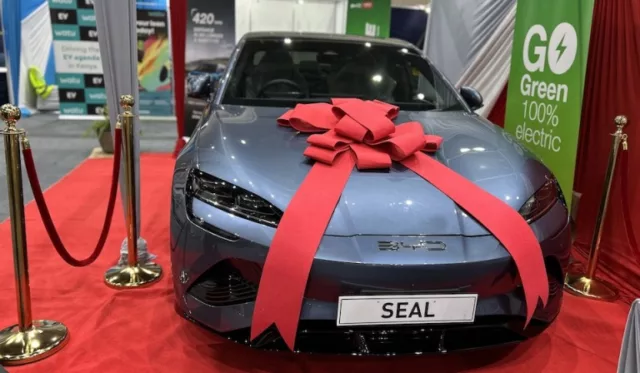
BYD is no longer just building electric cars; it’s building pressure. As China’s dominant electric vehicle (EV) maker cuts prices, scales exports, and tightens its grip on market share, competitors, especially at home, are feeling the strain, but in Africa and Asia, the tide may just be what they need to access affordable vehicles.
The automaker’s latest round of price cuts, announced last week, marks a sharp escalation in China’s ongoing EV price war. BYD slashed the cost of its entry-level Seagull hatchback by more than twenty-two percent, bringing it down to about $7,765. The company also reduced prices across 22 electric and plug-in hybrid models, part of a promotional campaign running through June. Buyers must trade in older vehicles to qualify, but the message is clear: BYD is signaling its intent to dominate—at any cost.
For EV markets in Africa and Asia, where affordability is essential, this could offer a short-term advantage. Lower prices may accelerate the adoption of electric vehicles in countries like Kenya, where used internal combustion engine cars still rule the road. But beneath the surface, the long-term risks are mounting.
The intensifying competition is cutting deep into industry margins and threatening the survival of smaller automakers. Following BYD’s announcement, shares of Chinese EV firms including Nio, Leapmotor and Geely fell. The jitters reflect a deeper unease: this may not be a temporary price war but it may be the beginning of a shakeout. Great Wall Motors chairman Wei Jianjun compared the auto sector’s current state to that of Evergrande, the property giant that collapsed last year under massive debt.
In the scramble for market share, companies are now offering once-premium features like advanced driver-assistance systems at no extra cost, fueling a race to the bottom that could have lasting consequences. Financially strained EV manufacturers may struggle to ensure quality or provide reliable after-sales service for buyers in emerging EV markets.
WHY IS THIS IMPORTANT? Should some startups collapse, consumers could be left with unsupported vehicles, scarce parts, and broken warranties.
At the same time, a flood of low-cost EVs into overseas markets, without robust recycling and aftercare infrastructure, risks worsening e-waste problems, particularly in developing countries. And if the shakeout results in only a handful of dominant players, prices could rise again, reversing early gains in affordability and reducing choice.
While BYD’s push is reshaping the EV landscape, ultimate consumer benefits will depend on how long the price war lasts and who survives it.









